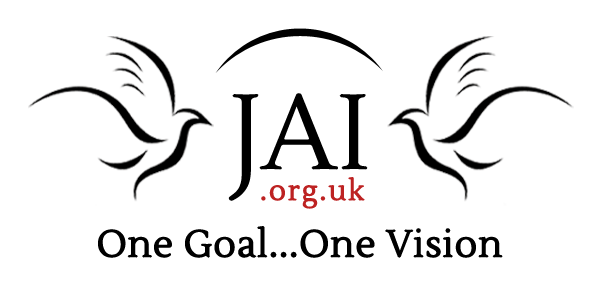
How do we approach food?
Firstly we DO NOT diet!
From the knowledge we have gained from exploring the truth in food we now simply choose the food which we know both suits and benefits us and we enjoy eating.
Once you decide to simply focus on what it is your body actually requires to perform to its ‘optimum’ level of natural performance the rest is easy…
…and that is exactly what we did and is now our approach to food.
What is good for us and benefits us and how much of it do we need or how much of it can we enjoy whilst maintaining healthy equilibrium? A simple formula and it works 100% of the time and for everybody! Obviously…I here you say?
So, where do we start? To cut to the chase and before you delve into the science of each individual food stuff, how about we look into what experts throughout the World describe as ‘Super-foods’ and we’ll check these out first…a pretty logical place to start? What do you ‘think’?
Below are a few links that we can use for our purposes; they are pretty much taken off the net at random to get us started…(FFT)…and as you will see the lists have ‘grain’ in some shape or form listed! …Obviously this poses a question does it not? The ONLY question we are concerned with, i.e. ‘What is the TRUTH?’ (Is grain a ‘super food’ or a ‘toxic’ substance to me?)…and obviously it is our PERSONAL responsibility to find the TRUTH in whatever WE are interested in! Get it?
As you can see there are some great foods on that list which we are all familiar with and are available to the more fortunate of us throughout the world. Now let’s become knowledgeable about these foodstuffs and start comparing them with other foods we eat. The comparisons you make will be obvious and you will soon understand what is potentially good for us and what is potentially not so good for us…and the more you find out the happier and ‘healthier’ you will feel just by introducing more good food into your diet and reducing the not so good.
We can do this by using this website, www.nutritiondata.self.com, but first click on the links below to compare ordinary potato with sweet potato which will help you get started…both staple carbohydrates eaten throughout the world but look closely at all the factors included in the analysis taking special interest of the levels of Vitamin A and C, the Glycemic Load, and do some research on the anti-inflammatory properties of each:
POTATO – v – SWEET POTATO
Can you see now why ‘sweet potato’ is more firmly featured in ‘super food’ lists?
Moving on…
Physicality: Like any ‘engine’, we have found out that our bodies respond best to a steady flow of good fuel, supported by good lubrication (blood flow), oxygen supply and it the case of a ‘living’ engine, hydration (water intake).
Again, to cut to the chase, these are a few facts that we have found out that have led us to altering our dietary habits and as a consequence we DO feel healthier and more vital and we no longer have to concern ourselves with ‘storing’ fat or carrying unwelcome body weight.
We have discovered that ‘cravings’ are simply a physical response to our body’s need for sugar which is required to regulate our ‘out of balance’ insulin demands. These insulin ‘spikes’ as they are sometimes referred to are due to our insulin requirements being met from the ‘easiest’ source of sugar, which in a person who has a diet made up of large amounts of processed foods and ‘starchy’ carbohydrates (potato (not sweet potato!) for example), is the sugar that is contained within these food stuffs and so readily metabolises from them.
Processed foods (such as cakes, biscuits, cereals, ready cooked meals, bread, pasta etc) and ‘starchy’ carbs (such as potatoes, rice etc) break down incredibly fast therefore either directly releasing high levels of the ‘sugar’ that is contained in them into our system or in the case of starchy carbs break down and metabolize the carbohydrate into high levels of sugar.
The other ‘major’ piece of information we discovered was the effect on NOT eating enough or more accurately, not eating (the correct food stuffs) ‘REGULARLY’ enough which leads to our bodies ‘storing’ fuel in the way of fat reserves! Remember the old wives saying…’eat little and often…’, well it is absolutely true if you want to avoid storage of excess fat! (Understanding this one fact, this one system and simply applying it has made a huge difference for me and my fat reserves!)
Lots to discover! Get stuck in!
Does the thought of ‘knowing’ what is good for you nutritionally excite you? We got excited when we realised what a huge difference simply ‘replacing’ one ‘tasty’ food with another made!Read this recent email we received from Shin Ohtake… it sums up our position pretty succinctly too.
Kevin,
Let me ask you a simple question? What is the perfect diet?
Is there such a thing? Are we genetically optimized to eat a certain type of diet?
Low carbs? Low Fat? The Zone Diet? The Paleo Diet? The South Beach Diet? Vegetarianism? Vegan?…
Well, one thing I can almost certainly guarantee, is that you’ll get a different answer depending on who you ask. Not at all surprising, considering we get contradicting information from real experts, as well as “so-called” experts (…swayed by big corps), our own government (…nuff said) and of course our highly trusted media (…nudge…wink…) including the worldwide inter webs.
When real facts get mixed up with opinions and even worse…get suppressed or manipulated due to monetary gains and political influences you end up in the mess that we’re in today.
I don’t think I’m going out on a limb to say that the decline in our general health and the progressive incline of serious diseases such as diabetes, obesity, metabolic syndrome and autoimmune disorders (…the list goes on…) can largely be attributed to poor diet.
Poor diet that consists mainly of processed foods, packed with sugar, trans fats and other compounds detrimental to our health. The problem is the boundaries of what’s considered “real” food have become so blurred that whole foods are more foreign to people than processed foods.
And this brings me back to my original question? Is there such a thing as the perfect diet? A diet that can prevent modern diseases and reverse our declining health and get us healthy enough so we can kick our dependency on drugs?
Well that’s exactly what the film makers of a documentary called “In Search of the Perfect Human Diet” wanted to find out. The makers of the film travel all over the world interviewing experts, collecting information and facts in search for the answer to their one question…the perfect diet. Personally I liked the film and if you’re into health and diet, I think it’s worth a look.
I especially appreciated the fact that the film makers gathered information from experts in the field of evolutionary anthropology and Paleolithic human nutrition who have no (real) biased opinion when it comes to nutrition. They are academia that base their conclusions on hard evidences found from fossilized remains.
And according to our 2 million year evolutionary timeline, evolutionary anthropological evidences clearly indicate that we (humans) evolved eating meat, rich in protein and fats, as our main source of food. In fact, evidences show that the consumption of meat is what allowed our brains to grow and develop. If we had evolved as herbivores (plant eating organism) we would have lacked the brain development due to the absence of vital nutrients, necessary for brain development, in plant foods.
Our current Neolithic diet has only been around for the last 20,000 years, since the introduction of agriculture, which means for the first 1.98 million years of our existence or 99% of our time, we thrived on a protein rich diet without much carbohydrates.
It’s funny to think that low carb diet is thought of as a fad or even sometimes frowned upon by some because it seems “unnatural”…but in fact it’s what we ate for 1.98 million years! Which would technically make all other “natural” diets a fad instead.
Eating a diet that helped our species progressively evolve for 2 million years seems like the perfect diet for us. If it was good enough for us to evolve for 2 million years, it should be good enough for us to evolve another 2 million years.
Ironically, even with all the foods available to us, it can be somewhat challenging to eat like our like our ancient ancestors mainly due to factors like (lack of) convenience, (too expensive) expense, (stressful) lifestyle and (lack of) time. But the flip side is worse. Compromised health, weight gain, disease and sickness are all consequences of a poor diet. It’s worth the extra time and effort it takes to eat a healthy “evolutionary beneficial” diet.
Here are some simple tips to keep in mind when following a healthy evolutionary diet:
Ditch processed foods, grains, sugar, dairy and legumes.
Include various sources of quality protein from meat, fish and fowl. Consume about a 1g of protein per lean body mass…if you’re active.
Keep your carb intake low, preferably under 100 – 150 g a day and keep 85% of your carb intake from vegetables and fruits and 15% from roots and tubers (sweet potatoes, yam).
Consume enough healthy fat from sources like (grass fed) red meat, cold water fish (high in omega 3 fatty acids), olive oil, coconut products, coconut oil, avocado and some nuts.
Stay clear of trans fats and high fructose corn syrup (…easy to do if you’re avoiding processed foods).
Keep all (…or majority) of your liquid intake from water. Stay away from juices, sports drinks, soft drinks and alcohol.When in doubt think what your ancient ancestors would have eaten? If it’s in a in box…well you already know the answer.
Stay Lean,
Shin
P.S. There are many diets that follow the evolutionary way of eating. Although there are minor differences between these diets they all promote the idea that eating the way our ancient ancestors did is the way WE should be eating. And I couldn’t agree more! The great thing is, eating this way not only allows you to achieve optimum health while preventing (and in some cases reversing) diseases, but it’s also the most effective way to burn fat and lose weight! Go figure…coincidence…I think not!
How do we approach fitness?
Firstly, we do not embark on any physical activity which is, or becomes, chore-some … PERIOD!
And by the same process as the one we embarked upon in trying to make sense of understanding the food we eat, our discoveries relating to physicality and fitness has given us the understanding of how to stay fit for function by engaging in activities we enjoy and at whatever level of performance we ‘choose’ to aspire to…
…and we continue to find out what is and isn’t productive to our fitness or attempts to gain fitness by investigating what is being claimed in the scientific world and what is ‘proven’ as fact.
As a result we walk everyday taking in as much of Nature’s beauty as we can and we try and keep ‘busy’ (keep on the move) throughout our daily routine. To stay strong and supple and aerobically fit we enjoy high intensity workouts for short periods of time 3 – 5 times a week using mainly exercises we can achieve using our own body weight…press ups, squats, star jumps, pull ups etc. We enjoy cycling too and we swim with the kids and enjoy a round of golf. I am 50, know how my body responds after being a relatively sporty young man and I know this ‘hunter-gatherer’, eat the food that suits our needs in the correct quantities and often thus reducing our natural mechanism to ‘store’ reserves for a rainy day, works… as I am my own proof and I feel great and I look fit and healthy too. Plain and simple common sense.
If you have aspirations to perform at a high level for sporting competition or to achieve personal ambitions or goals then simply seek out the truth… find out, seek out expert advice on how best to fuel yourself and how best to train to achieve what you want – don’t guess, the knowledge is out there; look and you will find, and when you find, you will succeed. See the biggest picture…understand the smallest detail…happy ‘hunting’!
On to Page 9…




